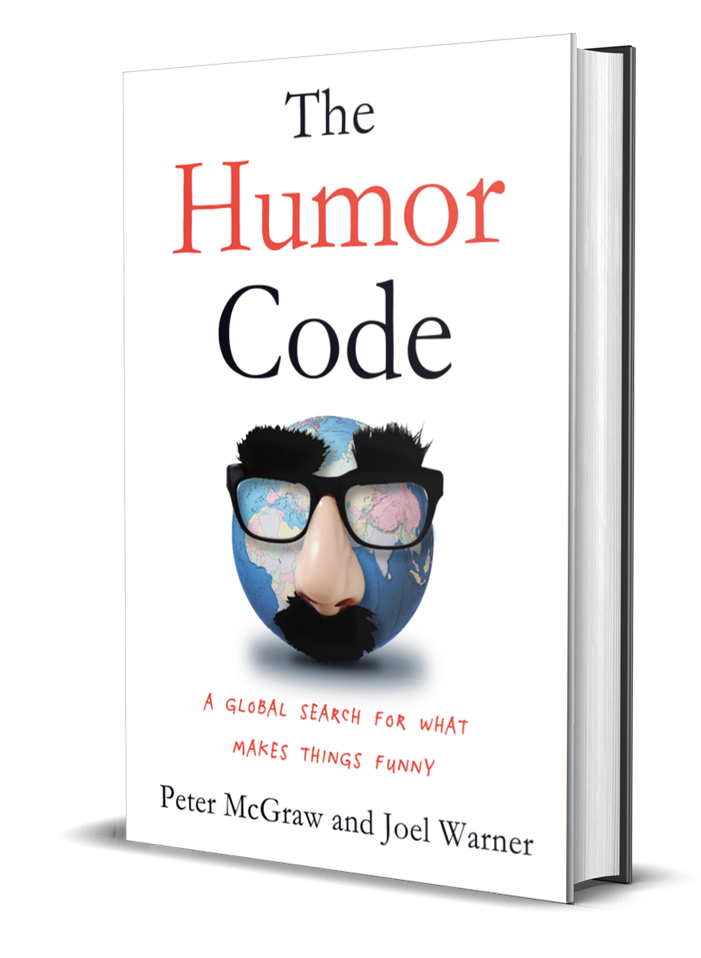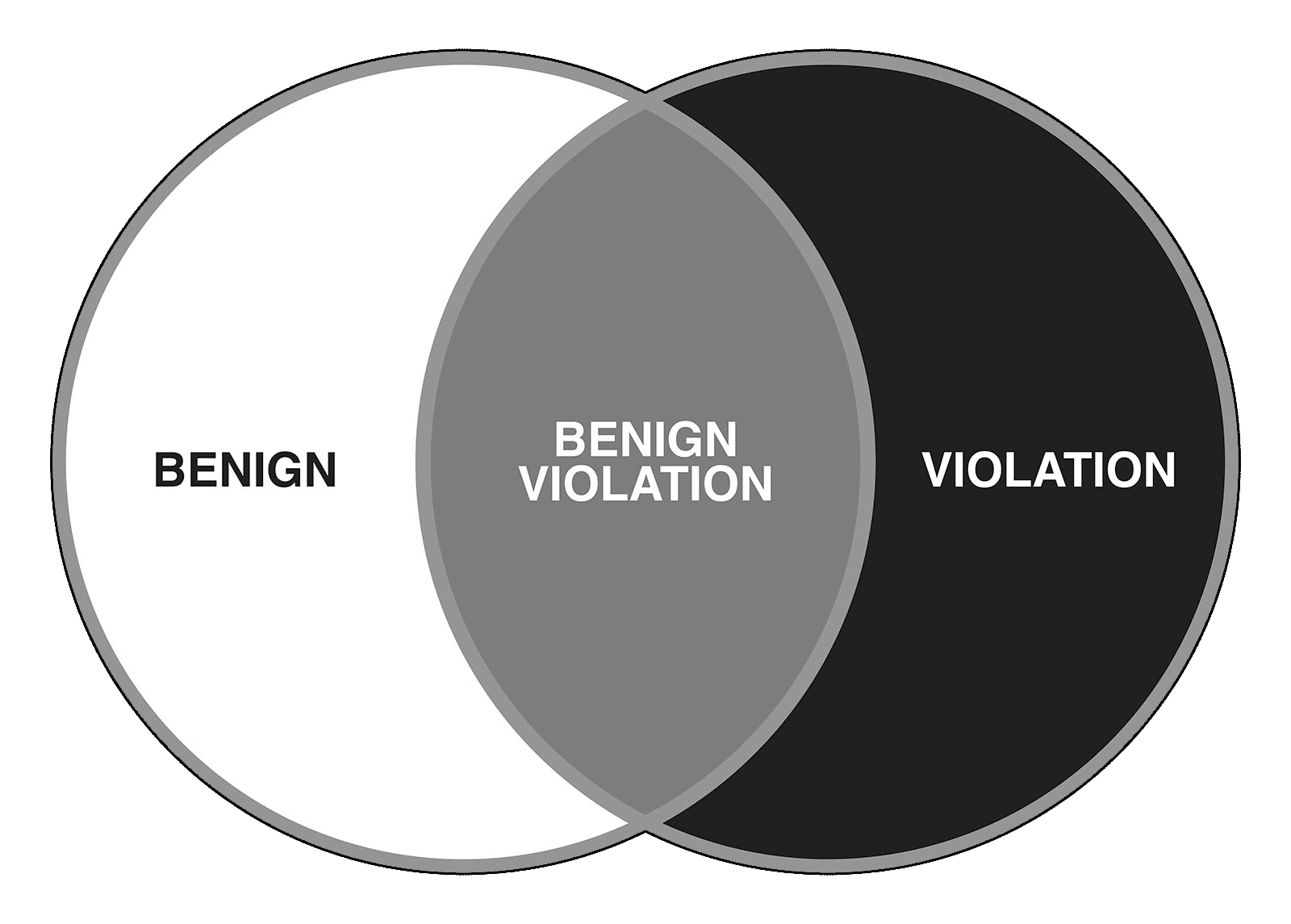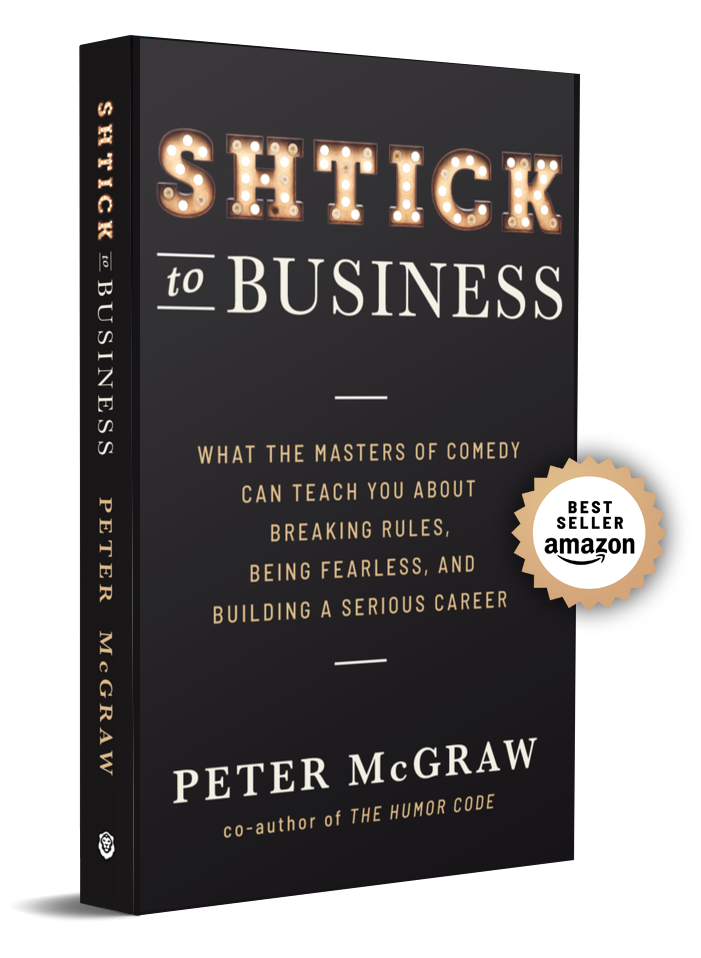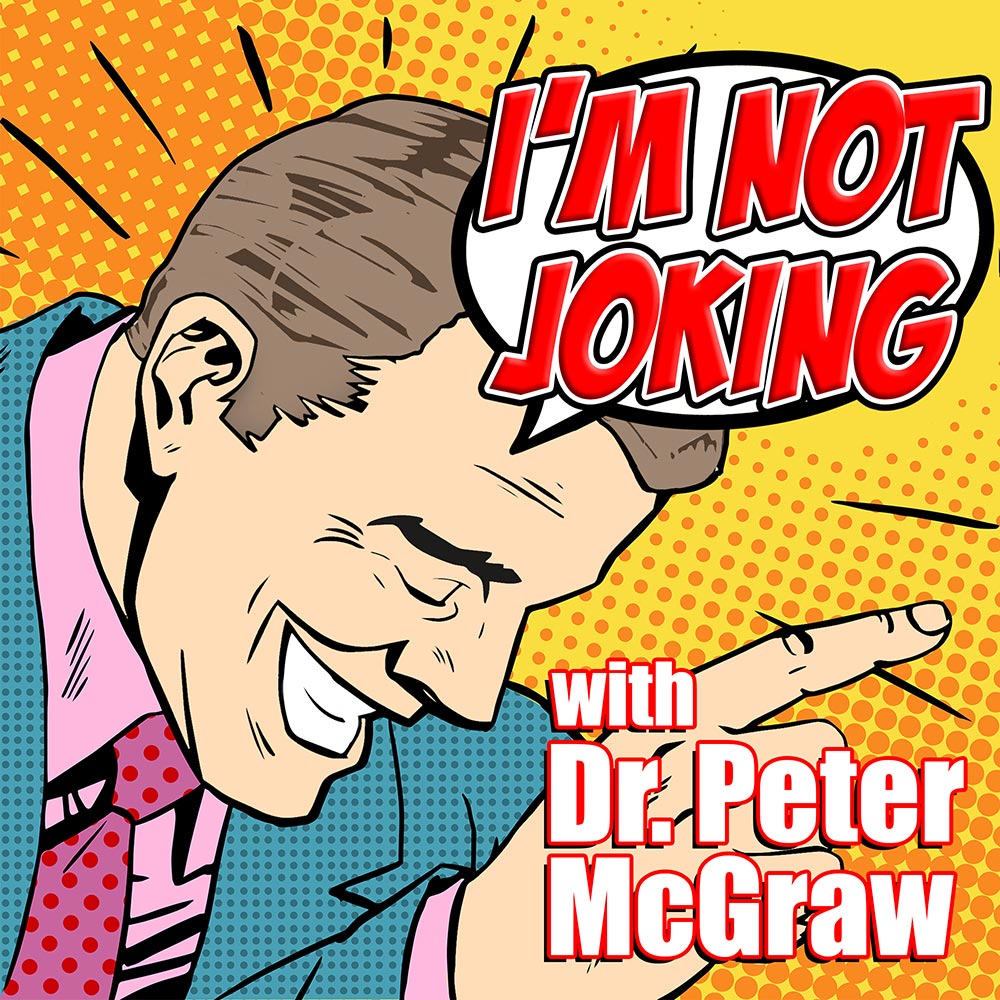Peter McGraw’s early research examined the interplay of judgment, emotion, and choice, with an emphasis on moral judgment, mixed emotions, and behavioral economics. More recently, he has examined the antecedents and consequences of humor—work that has helped move the study of humor from the niche to the mainstream. One advantage that he has over his predecessors is his ability to conduct state-of-the-art experiments with the help of the team he directs at the Humor Research Lab (aka HuRL). With Caleb Warren, he has developed a theory of humor: The Benign Violation Theory.
Benign Violation Theory
The benign violation theory explains humorous responses to a broad range of situations. The theory suggests that humor occurs when a person simultaneously appraises a situation as wrong or threatening some way (i.e., a violation) and yet appraises the situation to be okay or acceptable in some way (i.e., benign). Play fighting and tickling are prototypical examples of benign violations because both are physically threatening but harmless attacks.
A particular strength of the theory is that it predicts when things are not funny: a situation can fail to be humorous because it depicts a violation that does not simultaneously seem benign, or because it depicts a benign situation that has no violation. For example, play fighting and tickling cease to elicit laughter either when the attack stops (strictly benign) or becomes too aggressive (malign violation). Jokes similarly fail to be funny when either they are too tame or too risqué.
Shtick To Business
Comedians don’t just deal with an uncertain world, they thrive in it. Drawing on cutting-edge research and his own comedy successes (and failures), McGraw presents inspiring lessons gleaned from the practices and perspectives of the most creative rule breakers. And you’ll never be asked to tell a joke.
“A must-read for those looking to drive growth, progress, and sustainable success.”
– Josh Linkner, 5x tech entrepreneur, New York Times bestselling author
Amazon Best Seller
The Humor Code
2 guys. 19 experiments.
5 continents. 91,000 miles.
Part road-trip comedy and part social science experiment, a scientist and a journalist detail their epic quest to discover the secret behind what makes things funny.

What makes things funny - TEDxBoulder
HuRL
The Humor Research Lab (aka HuRL) is dedicated to the scientific study of humor, its antecedents, and its consequences. The lab’s theoretical and methodological base is in the interdisciplinary fields of emotion and judgment and decision making, with an emphasis in social and cognitive psychology.
I'm Not Joking
A podcast that looks at the lives of funny people
Glimpse into the lives of comedians, improvisers, comedy writers, and other funny people from business, science, and the arts. Host Dr, Peter McGraw—a behavioral scientist, business school professor, and Director of the Humor Research Lab (aka HuRL)—sits down with funny people for a wide-ranging discussion of their habits, motivations, and secrets to success.
Prominent Papers
- Warren, C., Barsky, A. & McGraw, A.P., (2018). Humor, comedy, and consumer behavior. Journal of Consumer Research, 45 (3), 529-552.
- McGraw, A.P., Warren, C., and Kan, C. (2015). Humorous complaining. Journal of Consumer Research, 41, 1153-1171.
- Warren, C., & McGraw, A.P. (2015). What makes things humorous. Proceedings of the National Academy of Sciences, 112 (23), 7105-7106.
- McGraw, A.P. & Warren, C. (2010). Benign violations: Making immoral behavior funny. Psychological Science, 21, 1141-1149. (Equal authorship)
- McGraw, A.P., & Tetlock, P.E. (2005). Taboo trade-offs, relational framing and the acceptability of exchanges. Journal of Consumer Psychology, 15, 2-15. (Lead Article)



